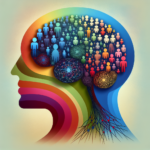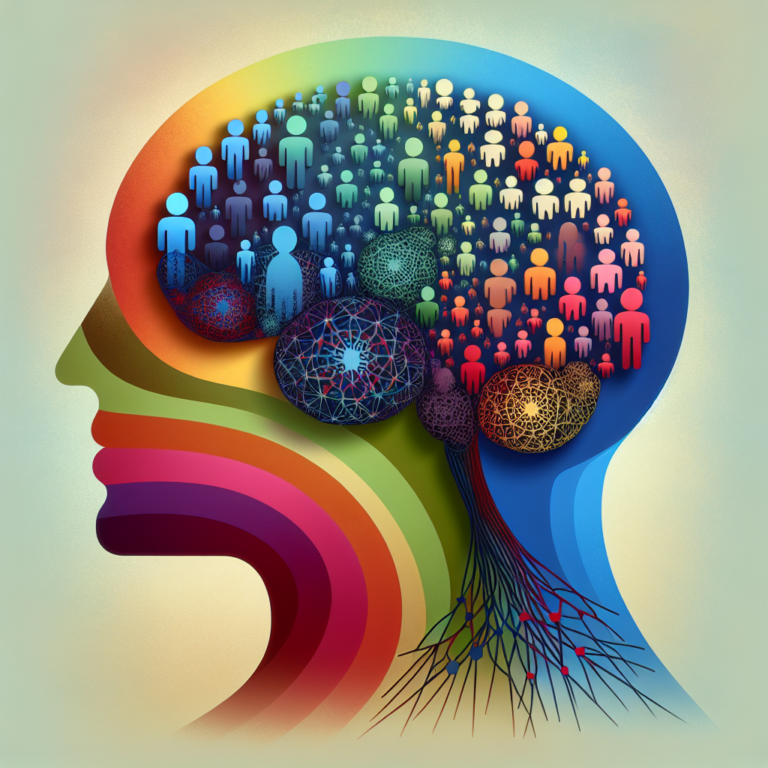Introduction
Cognitive decline is a daunting reality for many, as it encompasses various conditions that affect memory, thinking skills, and overall brain health. Understanding these changes is essential, not only for those experiencing them but also for their loved ones and caregivers. In this article, titled "Exploring the Science of Cognitive Decline: What You Need to Know," we delve into the mechanisms behind cognitive decline, the factors contributing to it, and effective strategies for management and prevention. Through engaging narratives, case studies, and valuable insights, we aspire to shed light on this critical topic.
What is Cognitive Decline?
Cognitive decline refers to the gradual loss of cognitive abilities, which can manifest in various forms such as forgetfulness, impaired reasoning, and diminished problem-solving skills. This decline can occur naturally with aging or result from various medical conditions, including dementia and Alzheimer’s disease.
Key Types of Cognitive Decline
Age-Related Cognitive Decline:
- As we age, our cognitive functions may show some decline, even in the absence of disease. This varies significantly among individuals.
Mild Cognitive Impairment (MCI):
- MCI is a transitional stage between normal cognitive aging and more serious conditions like Alzheimer’s. Individuals may experience noticeable memory issues but can still carry out daily activities.
- Dementia:
- A broad category that includes several specific diseases, dementia leads to significant interference with daily living and can include symptoms such as memory loss, mood changes, and impaired reasoning skills.
The Importance of Early Detection
Identifying cognitive decline early provides an opportunity to manage symptoms effectively and may slow down progression. Additionally, it enables better planning for future care needs, which is crucial for individuals and their families.
The Science Behind Cognitive Decline
Understanding the biological basis of cognitive decline is vital. Multiple factors interact in complex ways, leading to cognitive impairments. Let’s explore some of the primary contributors.
Neuroplasticity and Aging
Neuroplasticity refers to the brain’s ability to adapt and reorganize itself by forming new neural connections. While neuroplasticity is evident throughout life, it tends to decrease with age, leading to a decline in cognitive function.
Case Study: The Effects of Learning on Cognitive Aging
Recent research involving older adults who engaged in educational and social activities showed that continuous learning positively influenced cognitive health. Participants who regularly attended classes demonstrated improved memory and cognitive resilience compared to their peers.
Table: Neuroplasticity Across Ages
| Age Group | Neuroplasticity Level | Impact on Learning |
|---|---|---|
| Children (0-12) | High | Rapid learning and adaptation |
| Adolescents (13-19) | Moderate | Building complex cognitive skills |
| Adults (20-65) | Moderate to Low | Continued learning possible |
| Seniors (65+) | Low | Higher risk of cognitive decline |
The Role of Genetics
Genetic factors play a significant role in an individual’s susceptibility to cognitive decline. Certain genes have been associated with an increased risk of Alzheimer’s disease, highlighting the importance of genetic testing and screening.
Case Study: The APOE Gene and Alzheimer’s Disease
The APOE gene has been researched extensively concerning Alzheimer’s. Individuals carrying the APOE ε4 allele have a higher risk for developing the condition. A study examining families affected by Alzheimer’s sparked much debate about whether lifestyle modifications could counteract genetic risks.
Environmental Factors
Environmental elements, including lifestyle choices, nutrition, and physical activity, contribute significantly to cognitive health.
The Impact of Diet
A diet rich in antioxidants, healthy fats, and vitamins can counteract oxidative stress in the brain, which is linked to cognitive decline. The Mediterranean diet, for instance, has gained attention for its protective effects.
Case Study: The Mediterranean Diet
A longitudinal study following older adults adhering to the Mediterranean diet revealed a lower incidence of dementia, reinforcing the connection between nutrition and cognitive function.
Effective Strategies for Managing Cognitive Decline
Understanding cognitive decline allows individuals to take proactive steps to mitigate its effects. Here are several strategies, based on research and case studies:
Engage in Regular Physical Activity
Studies have shown that aerobic exercise enhances blood flow to the brain and encourages the growth of new neurons. Activities such as walking, swimming, or yoga can significantly impact cognitive health.
Case Study: The Impact of Physical Exercise
A study involving older adults participating in a 6-month aerobics program showed cognitive improvements related to attention and executive function, underscoring the importance of physical health for brain health.
Mental Stimulation
Engaging in mentally stimulating activities, such as puzzles, reading, or learning new skills, supports cognitive function.
Case Study: Lifelong Learning in Cognitive Aging
A research project focused on older adults who participated in educational programs found a significant decrease in cognitive decline among participants compared to a control group. The findings suggest that lifelong learning can be a protective factor.
Maintain Social Connections
Social engagement is crucial. Positive interactions with family and friends can enhance mental well-being and stave off feelings of isolation and depression.
Case Study: Community Support Groups
Research involving dementia care showed that support groups provide emotional and mental benefits to caregivers and patients. Participants reported reduced feelings of isolation, which positively influenced their cognitive health.
Conclusion
Exploring the science of cognitive decline reveals a complex web of biological, genetic, and environmental factors. While aging is inevitable, understanding cognitive decline is crucial for individuals and families. There are actionable strategies to promote cognitive health, from diet and exercise to mental and social engagement.
Key Takeaways
- Recognize the different forms of cognitive decline and the importance of early detection.
- Understand the biological, genetic, and environmental factors contributing to cognitive decline.
- Embrace lifestyle changes and seek support to maintain cognitive function during aging.
Let this guide inspire you to take proactive steps toward cognitive health, as knowledge is power in the fascinating journey of exploring the science of cognitive decline.
FAQs
1. What are the early signs of cognitive decline?
Early signs may include forgetfulness, difficulty concentrating, trouble with problem-solving, and challenges in completing familiar tasks.
2. Is memory loss a normal part of aging?
While some degree of memory loss can occur with age, significant memory loss or disruption in daily life should be evaluated by a healthcare professional.
3. Can cognitive decline be reversed?
While some aspects of cognitive decline may be managed or improved with lifestyle changes, most forms of significant cognitive decline cannot be completely reversed.
4. What lifestyle changes can help maintain cognitive function?
Regular physical activity, a healthy diet, mental stimulation, and strong social connections can all positively impact cognitive health.
5. When should I seek medical advice regarding cognitive decline?
If you notice significant changes in memory or thinking abilities that interfere with daily life, consult a healthcare professional for evaluation and guidance.
This comprehensive guide on "Exploring the Science of Cognitive Decline: What You Need to Know" serves not only as a resource to understand the phenomenon but also as inspiration for taking actionable steps toward maintaining cognitive health.
















